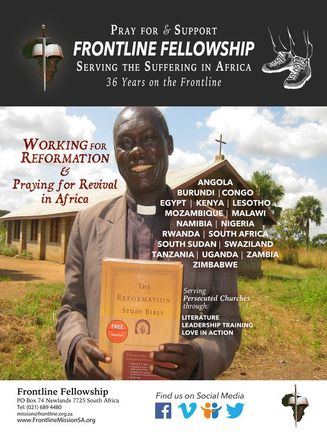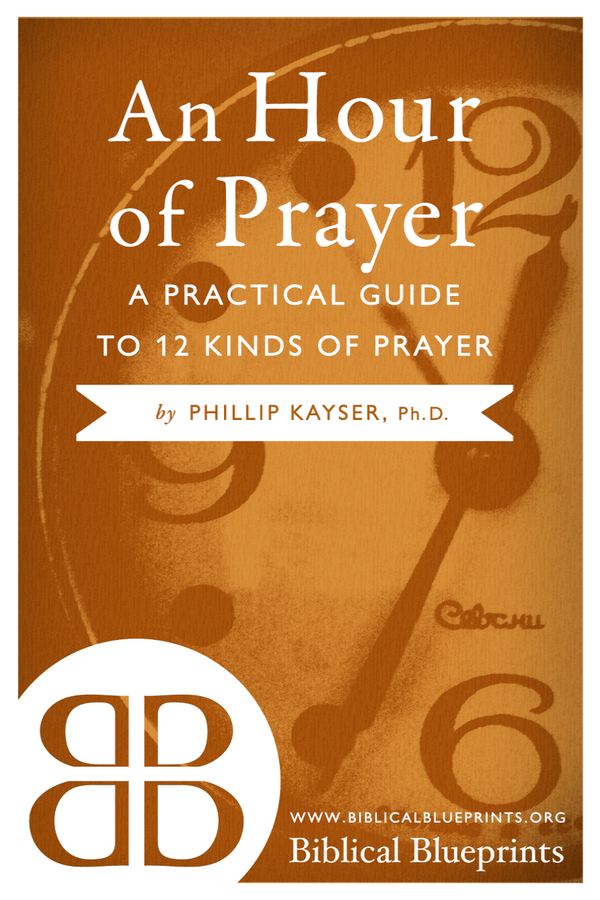 "Pray in the Spirit on all occasions with all kinds of prayers and requests . . . Be alert and always keep on praying for all the saints." Ephesians 6:18 "God gives us the Spirit as our teacher in prayer, to tell us what is right and to temper our emotions. We should seek such aid of the Spirit." John Calvin "Prayer is an art which only the Holy Spirit can teach us. He is the giver of all prayer." C.H. Spurgeon "There is no man, nor church in the world, that can come to God in prayer, but by the assistance of the Holy Spirit." John Bunyan "It must be acknowledged by the spiritual mind that all true prayer is of the leading of the Spirit; that He is the author of all real approach of the soul to God. All true prayer is put into words by the Spirit. He is the Author of prayer in the soul." Octavius Winslow "Pray for prayer - pray till you can pray, pray to be helped to pray and give not up praying because you cannot pray, for it is when you think you cannot pray that you are most praying." C.H. Spurgeon "Pray in the Holy Spirit." Jude 20  "If the grace of God be in him, it will be as natural for him to groan out his condition as it is for a sucking child to cry for the breast. Prayer is one of the first things that discovers a man to be a Christian." John Bunyan "He who does not habitually pray to God, cannot be a Christian." Timothy Dwight "A prayerless man is, of necessity and thoroughly, irreligious: There can be no life without activity. As the body is dead when it ceases to act, so the soul that goes not forth in its actions toward God, that lives as though there were no God, is spiritually dead." Charles Hodge "You then are not a Christian if you are not a praying person. The promise is that everyone that is righteous will pray. You, then, are a wicked wretch if you do not pray." John Bunyan
 "Prayer is a pouring out of the heart to God, through Christ, in the strength of the Spirit, for such things as God has promised. Prayer must be within the compass of God's Word; it is blasphemy or at best babbling, when the petition is beside the Book. David therefore in his prayers kept his eye on the Word of God: 'My soul cleaves to the dust; quicken me according to Your Word.'" "'Remember Your Word to Your servant, on which you have caused me to hope.' Indeed the Holy Spirit does not immediately quicken and stir up the heart of the Christian without, but by, in and through the Word. The Spirit, by the Word, directs the manner as well as the matter of praying." John Bunyan "What is it to pray according to God's will? When we pray for things which are agreeable to God's will, i.e. His revealed will; we should ask for nothing but what He commands us . . . for those things we have warrant to pray." John Cotton 1. Since the Christian is to do whatever the Bible commands him, he must pray because he is commanded to pray (1 Thessalonians 5:17). Since God commands us to pray, it is obviously of great profit and effective in procuring the blessings of God. "The effectual fervent prayer of a righteous man avails much." James 5:16 2. All prayer is to be exercised in an attitude of submissiveness to God, in which you really desire God's will as to what is best and good: "Your will be done" (Matthew 6:10). We want His will to be done on earth as it is in Heaven. 3. Prayer plays a part of the outworking of God's decree. God has decreed that we have not if we ask not. He has predetermined to hear our prayers and answer them. He has decreed that His eternal plan of salvation be worked out through the effectual, fervent prayers of righteous men, women and children. 4. The doctrines of grace should strengthen and provoke believing prayer because they point us to the absolutely sovereign God who can do what we ask. The God addressed in prayer is mighty to save, mighty to deliver and mighty to sanctify. Pray for God to save sinners and to revive saints. It is actually the Arminian who should give up prayer, for his god is too small, too weak and too soft to answer prayer. If God is not sovereign and man has a "free will" which even God cannot tamper with, why pray for the lost or for protection from enemies, either human or demonic? What comfort can be derived from a Deity who is biting his fingernails over whether or not men will "let" him do something? 5. Historically, the doctrines of grace have always produced men of prayer. 6. If your theology has led you to abandon prayer and to sneer at the concept that prayer is vital and necessary, then your theology is not Biblical. 7. A close examination of the prayers recorded in Scripture reveals that the saints of old filled their mouths with arguments when presenting their petitions to God. They buttressed their requests with Biblical arguments. They pleaded with God in terms of His Word, His glorious Names, His covenants of promise, and His plan of redemption. They presented their prayer requests like a lawyer who skilfully presents his arguments to judge and jury. Pleading with God in prayer and presenting reasons to God why He should grant our requests is a lost art today. George Mueller, as his biographer pointed out: "At this time of need . . . this man who had determined to risk everything upon God's Word of promise, turned from doubtful devices and questionable methods of relief to pleading with God . . ." "He used arguments in prayer and at this time he piles up eleven reasons why God should and would send help . . . He was one of the elect few to whom it had been given to revive and restore this lost art of pleading with God." In his sermon on Job 23:3-4. C.H. Spurgeon commented: "The ancient saints were given, with Job, to ordering their cause before God. Not filling the mouth with words nor good phrases, nor pretty expressions, but filling the mouth with arguments . . . When we come to the gate of mercy, forcible arguments are the knocks of the rapper by which the gate is opened . . .When a man searches for arguments for a thing, it is because he attaches importance to that which he is seeking." Mueller's biographer goes on to point out: "Of course, God does not need to be convinced; no argument can make any plainer to Him the claims of trusting souls to His intervention, claims based upon His own Word, confirmed by His oath. And yet He will be inquired of and argued with. That is His way of blessing . . . We are to argue our case with God, not indeed to convince Him, but to convince ourselves." To this Eziekel Hopkins adds: "Now, although it be true that all the arguments that we can urge and all the reasons we can allege, cannot alter the purposes and determinations of God, as to any event that He has ordained, yet there is this twofold use and necessity of pleading them." "First, because by considering the reasons we have to pray for such mercies, our desires will be the more earnest and fervent in the obtaining of them." "Secondly, because reasons in prayer do mightily conduce to the strengthening of our faith and give us great encouragement to believe that we shall certainly obtain what we have so much reason to ask." Or again, as C.H. Spurgeon put it: "Why are arguments to be used at all? The reply is, certainly not because God is slow to give, not because we can change the Divine purpose, not because God needs to be informed of any circumstance with regard to ourselves . . . "The arguments to be used are for our own benefit, not for His. Our use of arguments teaches us the ground upon which we obtain the blessing . . . Besides, the use of arguments is intended to stir up our fervency . . ." From what shall we construct our arguments? Where can we find weighty reasons to lay before God? Where can we derive arguments from which we can present weighty reasons along with our petitions? 1. God's attributes. Spurgeon put it like this: "You and I may hold anytime upon the justice, the mercy, the faithfulness, the wisdom, the long-suffering, the tenderness of God and we shall find every attribute of the Most High to be, as it were, a great battering-ram with which we may open the gates of Heaven." For example, we can argue from 1 John 1:9 that God's faithfulness and justice are grounds for forgiveness (cf. Psalm 51:1-3). 2. The promises of God. Spurgeon observes: "If you have a Divine promise, you need not plead that with an "if" in it; you may plead with a certainty." (cf. 1 Kings 8:56; 1 Thessalonians 5:23-24). 3. The Names of God. When in need of strength, should we not cry out to Elohim, the God of power and strength? When seeking a blessing from the New Covenant, should we not argue from the name "Yahweh," which is God's covenantal name? When appealing to God's sovereignty, "Adonai" should be upon our lips. When confronting satanic forces, the Lord of Hosts should be our shield and high tower. 4. The sorrows of God's people. The present condition of the church is a weighty argument for our need of revival (cf. Psalm 80:4-7; Psalm 12:1). We should also plead our own unworthiness, weakness and poverty of spirit (cf. Psalm 25:16; Luke 15:18-19). The history of redemption, God's mighty acts in past history provides a foundation for our trust in God (cf. Psalm 30:11; 143:1-6). 5. The atoning life, death and intercession of Christ. Spurgeon observes: "When you plead that which shakes the gates of hell and which the hosts of Heaven obey and God feels the sacred power of that Divine plea. You would do better if you sometimes thought more in your prayers of Christ's griefs and groans . . ." The end result of using argument in prayer shall be a strengthened and energised prayer life. Faith will be emboldened to go to God's throne and secure the petitions inquired of God. Thus, we will rejoice in seeing our prayers avail much. Spurgeon says: "If the Holy Spirit shall teach us how to order our cause and how to fill our mouth with arguments, the result shall be that we shall have our mouth filled with praises. The man who has his mouth full of arguments in prayer shall soon have his mouth full of benedictions in answer to prayer." 6. A study of the prayers in the Bible reveals that the saints of old - and even our Lord - set apart whole days or nights dedicated to prayer and fasting. When something great was requested from God or whenever the situation was desperate and important decisions were soon to be made, the saints of old would give themselves to fasting and prayer. "Pray Continually" 1 Thessalonians 5:17 Dr. Peter Hammond
0 Comments
Leave a Reply. |
Prayer Articles
All
Archives
July 2023
|
"And Jesus came and spoke to them, saying, “All authority has been given to Me in heaven and on earth.
Go therefore and make disciples of all the nations, baptizing them in the name of the Father and of the Son and of the Holy Spirit,
teaching them to observe all things that I have commanded you; and lo, I am with you always, even to the end of the age.” Amen.” Matthew 28: 18-20
Go therefore and make disciples of all the nations, baptizing them in the name of the Father and of the Son and of the Holy Spirit,
teaching them to observe all things that I have commanded you; and lo, I am with you always, even to the end of the age.” Amen.” Matthew 28: 18-20
|
P.O.Box 74 Newlands 7725
Cape Town South Africa |
|



 RSS Feed
RSS Feed
